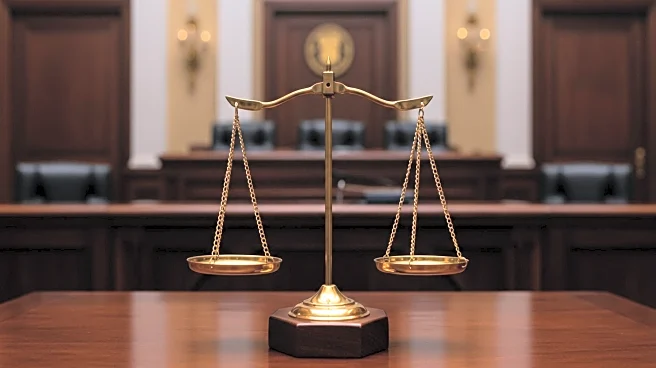What's Happening?
A proposal to amend the Michigan state constitution to delay paychecks for governors and legislators if the state budget is not finalized by the July 1 deadline was rejected by the state House. The resolution, sponsored by Republicans, failed to secure the necessary two-thirds supermajority required to advance it to a voter ballot. The vote saw 30 Democrats opposing the measure, which was introduced on short notice. The Legislature has yet to pass a budget, missing the July 1 deadline by over seven weeks, with no legal consequences for the delay. House Speaker Matt Hall expressed frustration over the stalled negotiations, attributing the impasse to political blame games. The amendment, if passed, would not affect the current budget situation as it requires voter approval to take effect.
Why It's Important?
The rejection of the amendment highlights ongoing political tensions in Michigan's budget negotiations. The failure to pass a budget by the statutory deadline has significant implications for K-12 school districts, public universities, and community colleges, which face uncertainty regarding state funding as the new fiscal year approaches. The proposal aimed to hold lawmakers accountable by linking their pay to budget completion, reflecting public frustration over political gridlock. The debate underscores the challenges in achieving bipartisan cooperation in state governance, impacting public services and financial planning for educational institutions.
What's Next?
With the amendment rejected, the focus remains on resolving the budget impasse before the fiscal year begins. Lawmakers must negotiate to finalize the budget, ensuring funding for schools and colleges. The resolution's failure may prompt further discussions on accountability measures for legislators. Political leaders may face increased pressure from constituents to prioritize budget completion over partisan disputes. The Senate's stance on similar accountability measures could influence future legislative efforts to address budget deadlines.
Beyond the Headlines
The debate over the amendment raises broader questions about legislative accountability and the effectiveness of political strategies in addressing governance issues. The proposal's introduction as a late agenda item suggests potential use as a political tool rather than a genuine effort to resolve budgetary challenges. The situation reflects the complexities of balancing political interests with public service obligations, highlighting the need for transparent and cooperative legislative processes.








